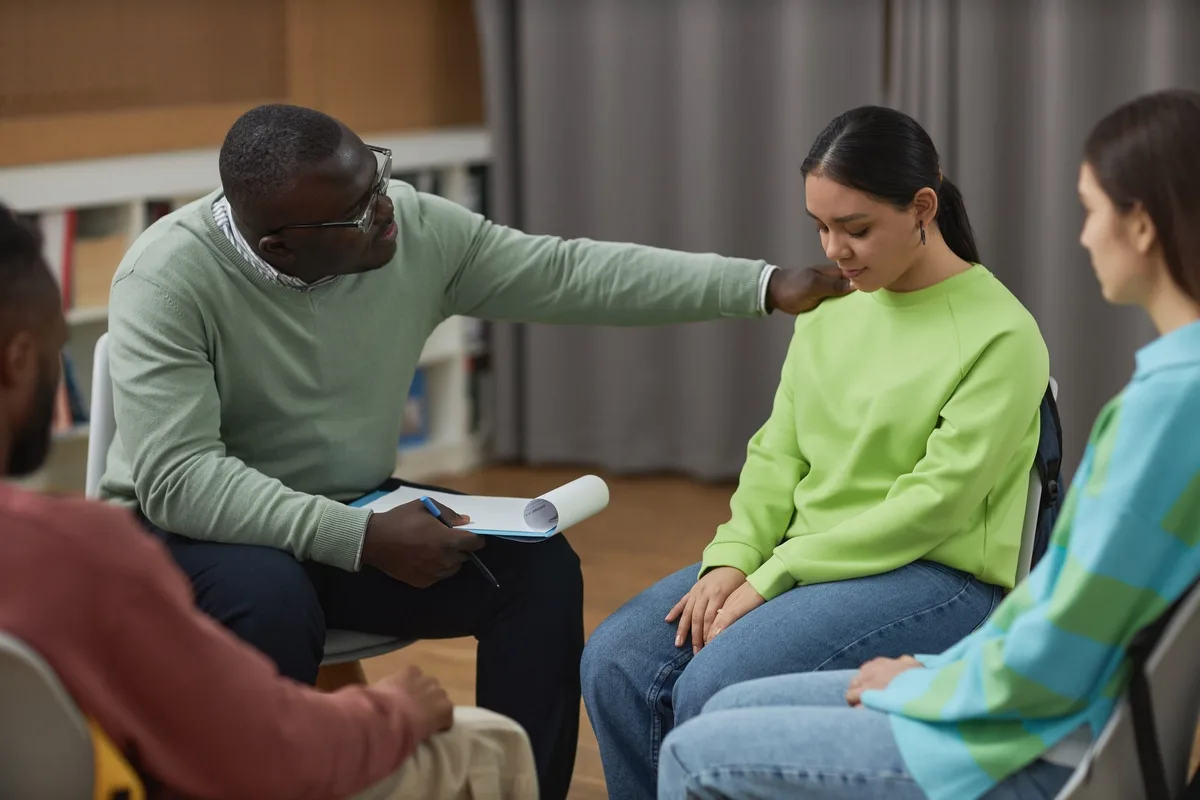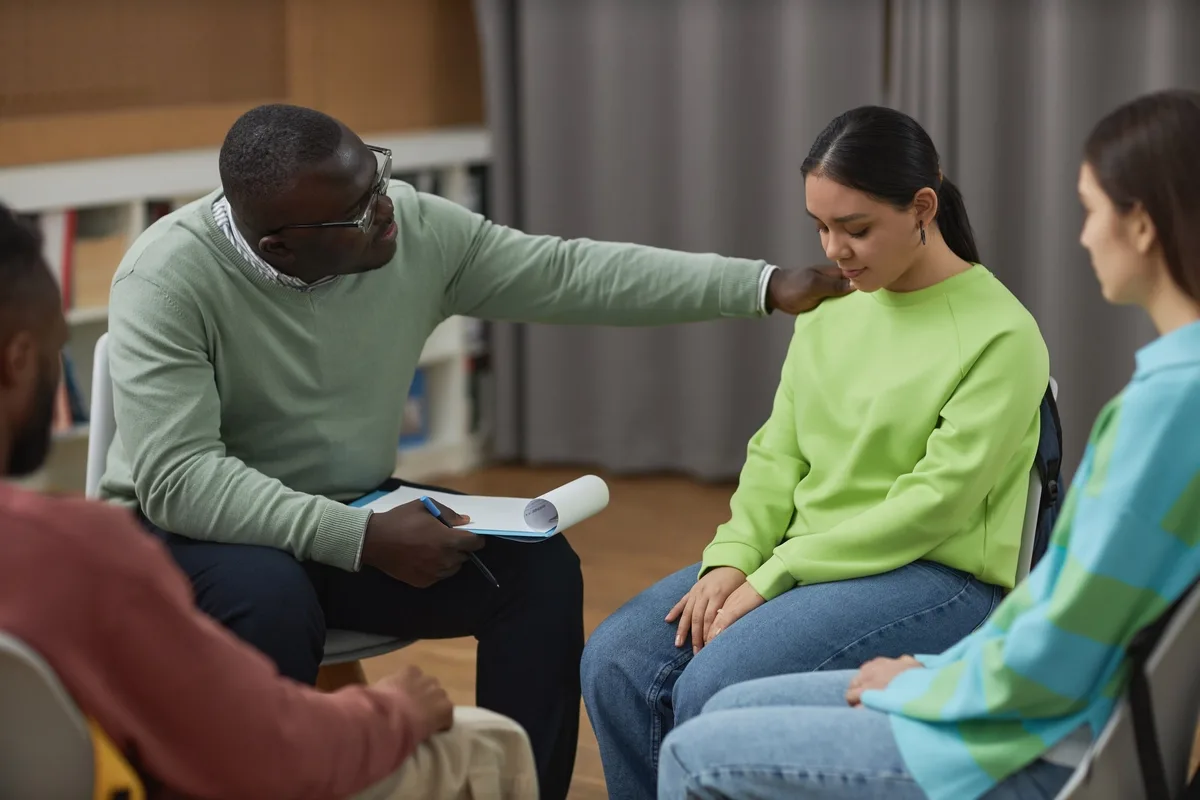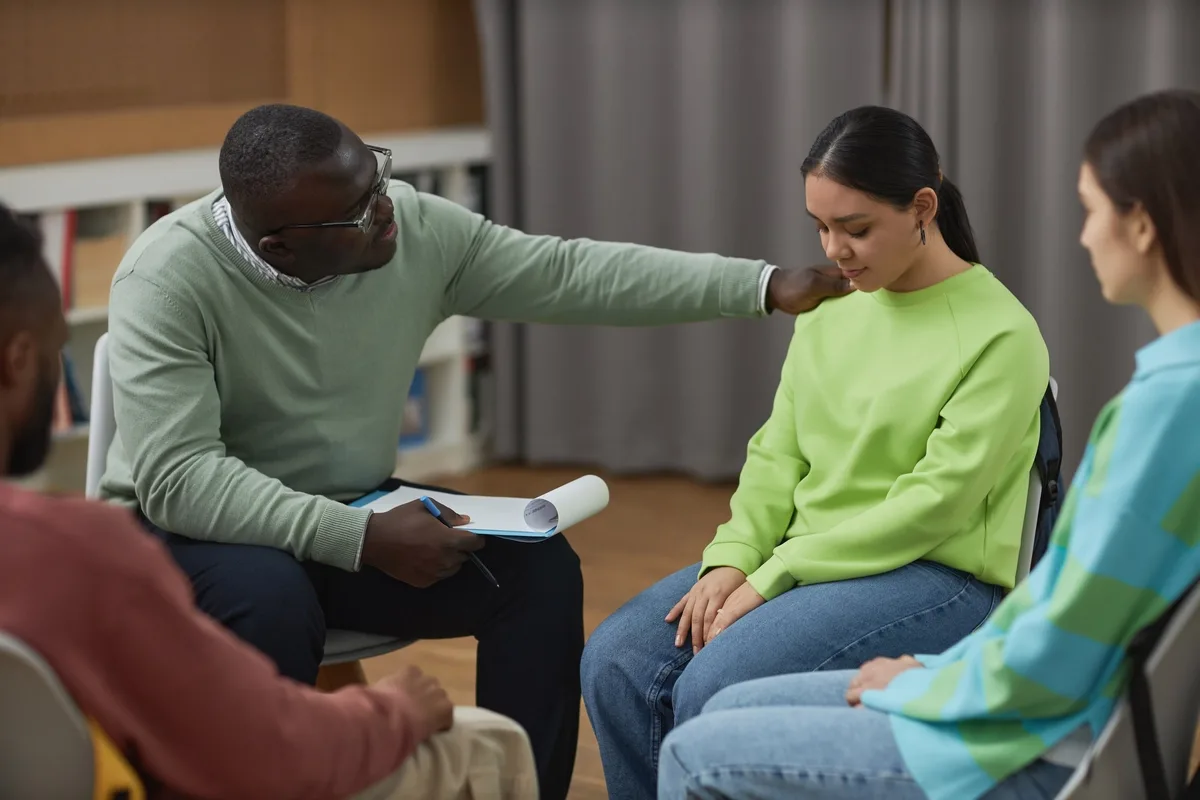24/7 Helpline:
(866) 899-221924/7 Helpline:
(866) 899-2219
Learn more about Residential Rehab centers in Coweta County

Other Insurance Options

CareSource

Group Health Incorporated

CareFirst

GEHA

Sutter

Holman Group

Cigna

Absolute Total Care

Sliding scale payment assistance

BlueCross

Regence

UnitedHealth Group

Self-pay options

Magellan

Horizon Healthcare Service

MHNNet Behavioral Health

Evernorth

Health Partners

Molina Healthcare

State Farm

Center of Renewed Promises
Center of Renewed Promises is a private rehab located in Newnan, Georgia. Center of Renewed Promises...

S and T Assessment and Counseling Service
S and T Assessment and Counseling Service is a private rehab located in Newnan, Georgia. S and T Ass...

Grace Harbour
Grace Harbour is an outpatient mental health clinic that serves individuals from all ages in a holis...









































Pathways Center
Pathways Center is a public rehab located in Newnan, Georgia. Pathways Center specializes in the tre...

Treatment Center of America – Newnan
Treatment Center of America – Newnan is a private rehab located in Newnan, Georgia. Treatment Center...

AA – Alcoholics Anonymous
AA – Alcoholics Anonymous is a non-profit rehab located in Newnan, Georgia. AA – Alcoholics Anonymou...























































































